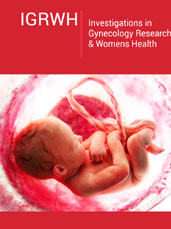- Submissions

Abstract
Investigations in Gynecology Research & Womens Health
Effects of Haemodialysis and Peritoneal Dialysis Treatments on Female Sexual Function and Sexual Counselling Needs
-
Open or CloseTuğba ÖZ* and Şule Çalişir Kundakçi
Nursing Department, Faculty of Health Science, Istanbul Beykent University, Türkiye
*Corresponding author:Assist. Prof. Tuğba ÖZ, Nursing Department, Faculty of Health Science, Istanbul Beykent University, Istanbul, Türkiye
Submission:November 25, 2024;Published: December 03, 2024
Abstract
Sexual dysfunction is one of the most common problems in patients with advanced renal failure. This review aimed to determine the sexual problems and counseling needs of female patients receiving hemodialysis and peritoneal dialysis treatment, to identify gaps in the literature, and to make suggestions for future research. Pubmed and Ulakbim databases were examined by using the keywords “hemodialysis,” “peritoneal dialysis,” and “sexual function,” “sexual counseling.” It has been reported that patients receiving hemodialysis and peritoneal dialysis treatment have different symptoms due to conditions affecting life, such as comorbidities, medications used, management of the dialysis treatment process, and compliance or non-compliance with diet. Sexual dysfunctions consist of problems such as decreased sexual desire, sexual aversion disorder, arousal and orgasm disorder, dyspareunia, and vaginismus in women. In the literature, it has been found that 85.6% or almost 91.5% of dialysis patients have sexual dysfunction. Sexual dysfunction has been found to increase even more in patients who experience difficulty in maintaining sleep and the accompanying symptoms of insomnia, shortness of breath, feeling uncomfortable and who still smoke. The fact that sexual dysfunction is at such a high level suggests that this issue deserves higher awareness and importance. Sexual dysfunction should be considered as an essential health problem by nurses who are health professionals. Nurses have an important role in the protection and development of sexual health and the evaluation of sexual dysfunction. Sexual counseling interventions in nursing aim to strengthen the sexual health of women receiving hemodialysis and peritoneal dialysis treatment, to determine the causes and characteristics of sexual problems, to make appropriate interventions to solve the identified problems, and to improve the quality of life..
Keywords:Haemodialysis; Peritoneal dialysis; Sexuality; Counselling; Nursing
 a Creative Commons Attribution 4.0 International License. Based on a work at www.crimsonpublishers.com.
Best viewed in
a Creative Commons Attribution 4.0 International License. Based on a work at www.crimsonpublishers.com.
Best viewed in 








.jpg)






























 Editorial Board Registrations
Editorial Board Registrations Submit your Article
Submit your Article Refer a Friend
Refer a Friend Advertise With Us
Advertise With Us
.jpg)






.jpg)














.bmp)
.jpg)
.png)
.jpg)










.jpg)






.png)

.png)



.png)






